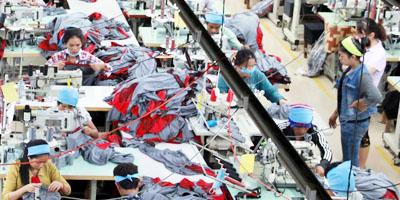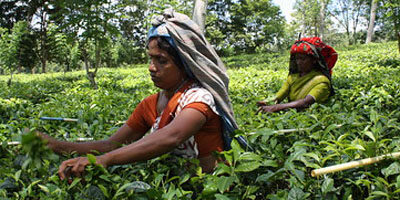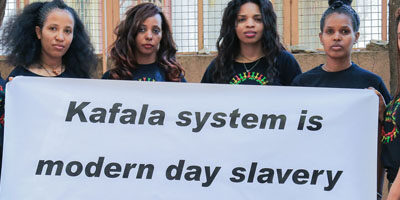241,679 farmers in India committed suicide between 1995 and 2009*
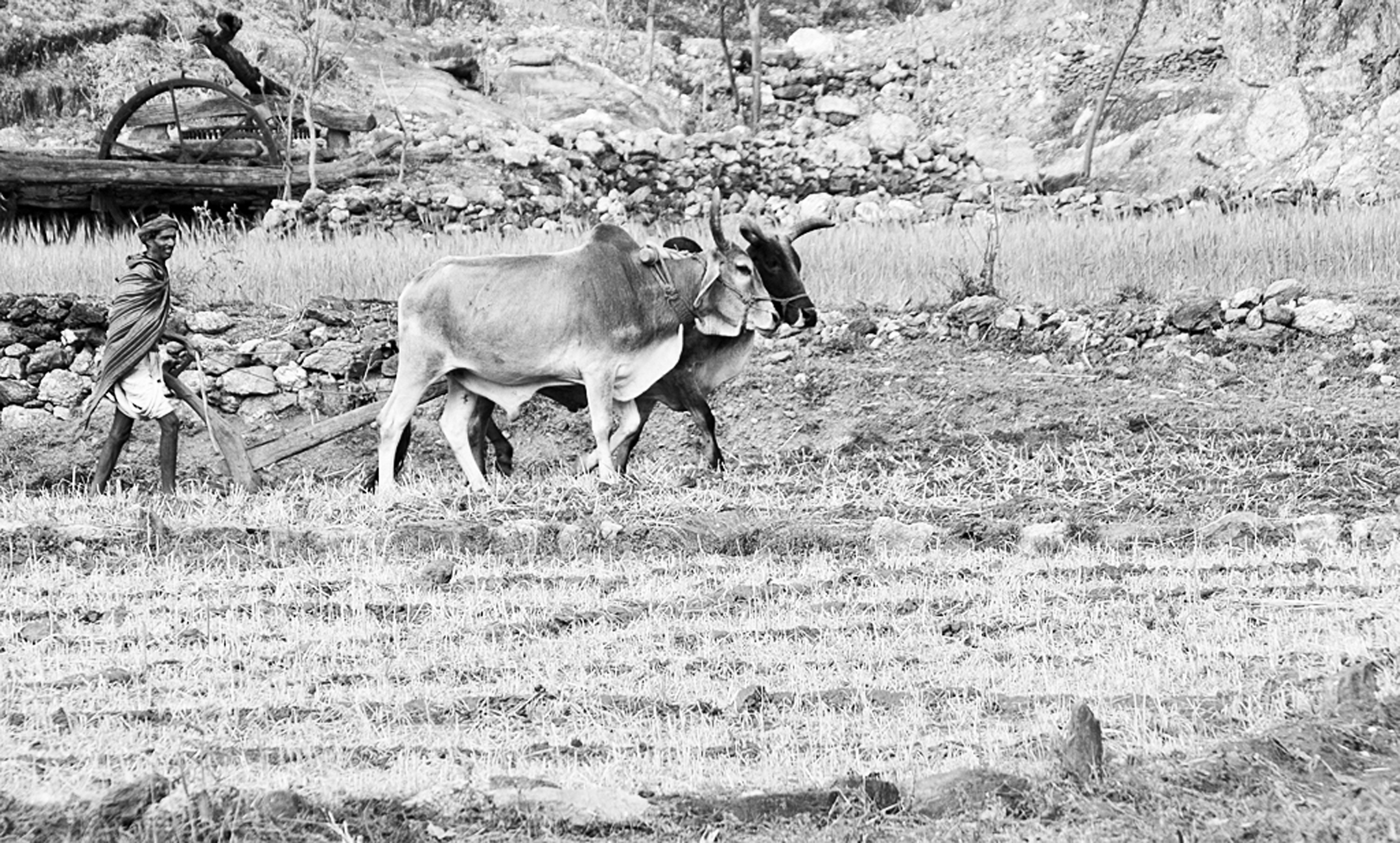
Dr. Raju Das, an associate professor at York University, has done extensive research on economic development policy, agrarian change, and poverty in India. Here is some of what he had to say:

Dr. Raju Das
In 1991, the Indian government scaled back support of small-scale farmers and increased investment in infrastructure serving large agribusiness. Farmers saw decreased input subsidies, privatization of government industries, and an increase in foreign investment encouraged by tax incentives. Opening up markets to inexpensive foreign goods eroded the competitiveness of India’s crops. Forced to sell at lower prices and denied subsidies by the government, the wages of India’s farmers began to plummet.
Open markets have also given international corporations the platform to push genetically modified (GM) seeds with higher crop yield potentials, but the seeds are sold to farmers at a cost two to ten times higher than traditional seeds.
Irrigation is required for these higher yields, but the government has failed to provide irrigation facilities in any adequate way. Seventy percent of farmland still depends on monsoon rainfall, so when drought comes farmers suffer.
In a dry year, the investment required to produce a crop can be lost. Seed and other input prices continue to rise, rendering it increasingly difficult for farmers with little capital to recover without relying on loans. Unable to get bank loans, farmers rely on small scale rural lenders, often at a cost that many farmers can’t afford, bringing chronic indebtedness and land loss.
Indebted farmers often face harassment by money lenders and may also be shunned by their communities. In rural India, land has emotional value, and without non-farm employment opportunities, land is everything. The loss of land autonomy can lead to despair, and without many options farmers are turning to suicide.
Suicide in rural India is a form of violence, a form of violence that is committed by the political economic system which cares more for profit than for human need and human life.
* Source: National Crime Records Bureau of India.
Vandana Shiva vs Monsanto
Monsanto responded to the issue of farmer suicide in India when the film Bitter Seeds was released in 2011. The IMDb plot summary says:
India has more farmers than any country in the world, and they are in a crisis that is unprecedented in human history. Every 30 minutes a farmer in India kills himself in despair. In a village at the center of the suicide epidemic, a farmer and his family struggle to keep his land and a teenage girl makes her first steps to become a journalist and tell the world about the crisis. Bitter Seeds raises questions about the human cost of genetically-modified agriculture and the future of how we grow things.
Dr. Vandana Shiva is a feminist ecologist living in New Delhi. She is founder of the Research Foundation for Science, Technology and Ecology (1982) and Navdanya (1991). Navdanya is a national movement with a membership of hundreds of thousands of Indian farmers, providing training in sustainable agriculture, protecting indigenous seed varieties, promoting the rights to food and fighting biopiracy and genetic engineering. The author of more than 20 books and recipient of many awards such as the Right Livelihood Award (1993), she is also advising the government of Bhutan in its effort to become a 100% organic country.
The Upstream Journal’s Riham Reza spoke with her about the role of Monsanto in the lives of Indian farmers.
The activist

Dr. Shiva Monsanto
Dr Shiva: Monsanto is hugely implicated in the farmer suicides. The suicides really start in 1997-98, when Monsanto entered the market and started buying up Indian seed companies. They started pushing seed companies to buy hybrids first, and genetically modified seeds, but I took them to court and they were delayed to 2004.
They pushed the seed cost up 8000 percent, but why would farmers buy it when they have their own seed? So they destroyed the farmers’ own seeds, they destroyed the public system, they destroyed the lower cost option of local seed suppliers by locking them in with licensing agreements and preventing them from using or selling other seeds.
They are the same kind of contracts they sign with the US and Canadian farmers. There, they sign them directly with farmers; here they sign them with companies.
In Gujarat, the largest producer of cotton, Monsanto’s Bt cotton is not there, and they don’t have farmer suicides. But in every area where Monsanto is present, farmers are indebted and that debt is pushing farmers to suicide.
In 1987, I realized what the corporate patent of genetically modified seed would do. You don’t patent a seed to give it for free to farmers, you patent it to collect royalties. Every year, Monsanto collects 10 billion rupees [CDN$190 million] in royalties from poor Indian people.
That is why we have started to protect seeds, and distribute them to farmers. And we help them go organic, and are now trying to build a market for the product.
Why hasn’t the government taken any action against Monsanto if the prices of seed has gone up exorbitantly?
Monsanto appropriates the government. And when the US pushes the government of India, the government of India gets pushed. The present prime minister thinks an agriculture deal with the US – which hands over seeds to Monsanto – and a nuclear deal are the best future for India. So governments have become part of the push for Monsanto’s monopoly.
Could you tell me more about the impact of GMOs on health and the crop itself?
I think the biggest health issue is the debt leading to farmer suicide. A quarter million suicides from drinking pesticides, is a big health issue.
The second biggest issue is in biodiversity, soil and environment. We have done surveys on the soil to show that in four years of planting, the soil had lost 25 percent of its beneficial soil organisms.
Then there are other things, like animals dying in Andra Pradesh when they were fed Bt cotton seeds. And workers, engineers etc., reporting health problems.
Since you started, do you think there has been any improvement, and response from the government, or civil society?
Well, for the first five years, the government spent all of its time saying that there were no suicides. I think it’s a success that we forced them to admit and monitor this now.
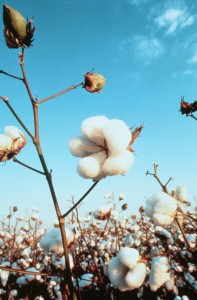
“Cotton farmers are in a deep crisis since shifting to Bt cotton. The spate of farmer suicides in 2011-12 has been particularly severe among Bt cotton farmers. In fact cost of cotton cultivation has jumped from Rs 7 million per hectare to Rs 12 million due to rising costs of pesticides. Total Bt cotton production in the last five years has reduced.” – Jan. 2012 Agriculture Ministry advisory
What the federal government should be doing is intervening at the policy level. It’s not, its failing. So the states are intervening and have joined the Andra Pradesh government in its anti-trust case against Monsanto.
“If you search the Internet for Monsanto, you will likely come across claims that failure of our Bollgard® cotton seed products has caused many farmers in India to take their own lives. Not everything you see or read on the Internet is fact and this is a good example.
The reality is that that the tragic phenomena of farmer suicides in India began long before the introduction of Bollgard in 2002. Farmer suicide has numerous causes with most experts agreeing that indebtedness is one of the main factors. Farmers unable to repay loans and facing spiraling interest often see suicide as the only solution.”
– Monsanto’ web site
It’s the federal government that is corrupted. We stopped Monsanto from introducing a Bt eggplant last year, when thirteen states joined us, because at the sub-national level there are huge, huge protests. But at the national level, it’s everywhere. Canada, the US, even Brazil became a Monsanto government.
The company
Farmer suicides are a tragic phenomenon that take place for a variety of complex social and economic reasons, which long pre-date the 2002 introduction of insect-protection Bt cotton technologies in India in hybrid cotton seeds.
Several reputable organizations including International Food Policy Research Institute (IFPRI), Indira Gandhi Institute of Development Research (IGIDR) and Indian Institute of Management (IIM) have conducted comprehensive socio-economic investigations into the farmer suicide issue and most agreed that indebtedness is one of the main factors. Other causes include repeated crop failures due to climatic conditions like heavy rain or drought, social and family obligations, breakdown of formal credit structures, lack of irrigation, lack of alternative source of income from occupations allied to agriculture, and little value addition to agriculture produce.
A recent study titled ‘Socio-Economic Impact Assessment of Bt Cotton in India’ by the Council for Social Development (CSD) analyzed the key reasons leading to farmer suicides as lack of irrigation facilities, lack of timely credit availability, and fluctuating cotton prices over the years. The CSD also found that 86 per cent of the farmers surveyed said yields and returns from hybrid Bt cotton seeds were higher than non-Bt cotton; 45 per cent of farmers reported the quantity and expenditure on pesticide usage on hybrid Bt cotton seeds had reduced over the years; and 99 per cent of farmers claimed Bt cotton had significantly reduced the attack of bollworms. Because of better profits, on average 85 per cent of farmers and landless labourers invested in better quality education for their children, 80 per cent reported intake of high value and nutritious food, 82 per cent on health of their family members, and 81 per cent on health of livestock.
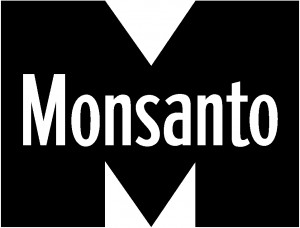
Farmers’ choices to plant hybrid cotton seeds with insect-protection Bt cotton technologies on over 90 per cent of cotton acres, and increased cotton yields are testament to the value created by better seeds, technologies and farming practices, when compared with the alternative of conventional seed and insecticide spraying
On Monsanto’s Alleged Monopoly
Monsanto develops and markets its own hybrid seeds with biotech traits as well as broadly licenses seed company competitors to use our biotech traits (for example, in-the-seed insect protection Bt cotton technology) in their competing cotton seed germplasm. Broad licensing accomplishes two things. First, it makes the market more competitive because all seed suppliers are able to offer biotech traits to their customers. Second, farmers get to choose from a wider variety of seed germplasm suited to their local agronomic conditions, but still have the option of not using the Bt insect protection trait.
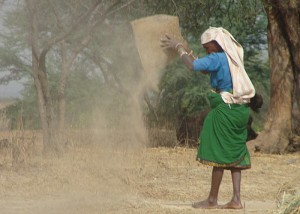
Women, on average, comprise 43% of the agricultural labour force in developing countries and account for an estimated two-thirds of the world’s 600 million poor livestock keepers. Photo: BBC World Service
Farmers learn from their experiences, and choose seeds that provide them with optimal yield, income and convenience in cultivation. As a result, many choose seeds with the Bt insect protection trait – whether produced by Monsanto or one of our competitors. Monsanto’s broad licensing model ensures Indian farmers have the choice of our cotton trait technologies in the hybrid cotton seeds of their choice.
As a company, we want farmers to be successful, and have the widest choice. We welcome competition as it drives innovation and wider choice, to the long-term benefit of farmers, the industry and the economy. Farmers are our customers. When farmers succeed, we succeed.
For perspective, Indian cotton farmers have the widest choice in the world – over 850+ hybrid seed varieties. According to the International Cotton Advisory Council (ICAC), Washington “The technology fee charged in India is the lowest in the world, and benefits are the highest.”
Development and commercialization of better quality seeds, new biotechnologies and seed treatments requires huge investments. It takes eight-to-ten years to discover a single beneficial gene and investments of approx. Rs. 500 crores to bring a single beneficial agri-biotechnology product to market, the benefits of which are experienced by farmers, through the supply chain and across the global commodity market.
